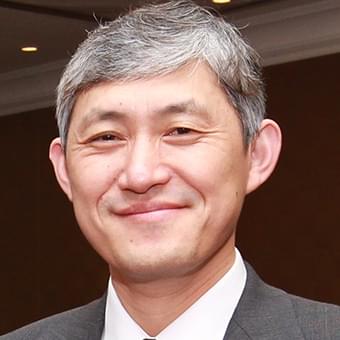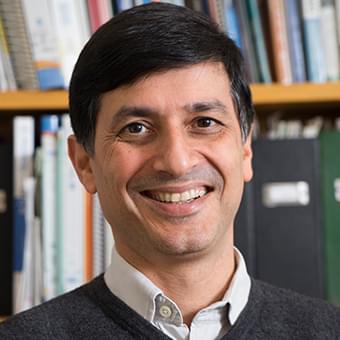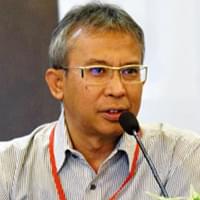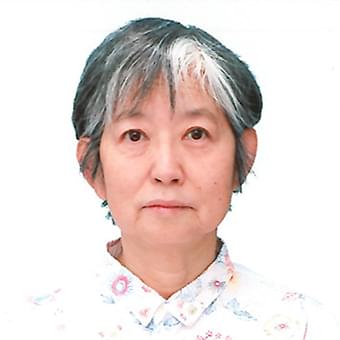The dual crisis of climate change and the COVID-19 pandemic posed new challenges for global society. Bringing greenhouse gas emissions down to net-zero is an essential target not only for achieving the long-term temperature goal under the Paris Agreement, but also for mitigating pandemic risks by restoring the relationship between humans and nature, including conversing forests as carbon sinks. Despite the recent declaration by China to realise carbon neutrality by 2060, the debate on the transformation of the entire social system in pursuing net-zero emissions has not necessarily deepened in Asia. With this as a backdrop, IGES has published a report called "A Net-Zero World -2050 Japan-” that discusses the state of Japan's 2050 net-zero society. Also under development is a report discussing the opportunities for green recovery on the path to net-zero emissions in Asia. This session aims to enrich the debate on possible strategies for the Asian region to facilitate the pursuit of net-zero emissions, considering future developmental needs, geopolitics, and societal and technological changes. This session will introduce the latest IGES report on net-zero for Asia, inviting eminent researchers in Asian countries such as China, India and ASEAN (Indonesia) to discuss challenges and opportunities for transforming Asia toward net-zero emissions after 2050.
Programme Director/Principal Researcher, Climate and Energy Area, IGES

Kentaro Tamura
Programme Director/Principal Researcher, Climate and Energy Area, IGES
Dr. Tamura obtained PhD in International Relations from the London School of Economics (LSE). After working for the Yokohama National University, he joined IGES in 2003. He has centred his research on international cooperation on climate change, in particular the development and design of international climate regime, political economy and comparative studies of domestic climate and energy policy making processes in major economies. He published a number of peer-reviewed journal articles and book chapters and edited books in the field of climate and energy policy.
Senior Researcher, Energy Research Institute (ERI)

Kejun Jiang
Senior Researcher, Energy Research Institute (ERI)
Kejun Jiang’s research focus is energy, climate change mitigation and air pollution prevention policy assessment by using IPAC modeling, to support national five year plans, and long-term planning. He began his research in ERI from 1990, and led the development of Integrated Policy Assessment Model for China(IPAC). IPAC modeling team is now a leading research team on China’s 2050 energy transition studies by providing benchmark research results. Major research focus includes energy and emission scenarios, energy policy, energy system,. energy market analysis, and climate change, local environment policies and international negotiation. He also was authors of IPCC for Special Report on Emission Scenario from 1997, and Working Group III Third Assessment Report, leader author for IPCC WGIII AR4 Chapter 3, and leader author for GEO-4 Chapter 2, CLA in WGIII of IPCC AR5, LA for IPCC AR5 Synthesis Report, CLA of IPCC Special Report on 1.5℃ Warning, Vice Co-Chair of GEO6. From 2010, he is author for UNEP Emission Gaps. Now he is lead author of IPCC AR6 WGIII. He also joined international research collaboration projects such as EMF, FP6, FP7 and H2020 research projects. He is member of Scientific Panel of UNEP CCAC, and Scientific Committee of IAMC. He got his Ph.D in Social Engineering Department of Tokyo Institute of Technology.
Professor, Centre for Policy Research

Navros Kersi Dubash
Professor, Centre for Policy Research
Navros Kersi Dubash is a Professor at the Centre for Policy Research, who has been actively engaged in global and national debates on climate change, air quality, energy and water for over 25 years.
Navroz is Coordinating Lead Author for the Intergovernmental Panel on Climate Change, and serves on the UNEP GAP Report Steering Committee. He has advised the Indian government making on climate change, energy, air and water policy for over a decade, including as a member of the committee on a Long Term Strategy for Low Carbon Development for India.
His recent edited book is India in a Warming World with OUP. He was conferred the T N Khoshoo Memorial Award in 2015 for his work on climate change and his co-authored paper was awarded the Emerging Nations Award for 2018 by Environmental Research Letters.
Executive Director, Center for Climate Risk and Opportunity Management in Southeast Asia and Pacific (CCROM SEAP), IPB University

Rizaldi Boer
Executive Director, Center for Climate Risk and Opportunity Management in Southeast Asia and Pacific (CCROM SEAP), IPB University
Prof. Rizaldi Boer is currently Executive Director of Centre for Climate Risk and Opportunity Management in Southeast Asia and Pacific of IPB University. He has been working on issues related to GHG mitigation strategies and climate change adaptation since 1998. He is very active in conducting a number of studies related to policies toward low carbon development. Some of his recent works related to LCD are Low carbon development strategies of Bengkalis District-Riau Province that reduce pressure on peat-land ecosystems, reducing agricultural expansion into forests and supporting city governments in the development of climate action plans under International Urban Cooperation Program. He obtained his PhD degree from University of Sydney, Australia in 1994
Senior Research Advisor, IGES

Mikiko Kainuma
Senior Research Advisor, IGES
Dr. Mikiko Kainuma is currently a senior research advisor of IGES. She joined National Institute for Environmental Studies (NIES) in 1977, and since 1990, she has been engaging in the development of Asia-Pacific Integrated Model (AIM), which assesses policy options for stabilizing the global climate, particularly in the Asian-Pacific region. She led the Low Carbon Asia Project from 2009 to 2014. She served as an adjunct professor at Japan Advanced Institute of Science and Technology from 2003 to 2014. Her current research area of interest are in low carbon societies in Asia, energy systems and social development. She has published papers in international journal and books. These include Climate Policy Assessment (2003), Methodologies for leapfrogging to low carbon and sustainable development in Asia (2017), and Post-2020 Climate Action: Global and Asian Perspectives (2017). She received Academic Award by the Society of Environmental Science, Japan (2011), Remarkable Contribution to Science and Technology 2010: NISTEP (2010), and Nikkei Global Environmental Technology Award (1994). She was a Lead Author of Intergovernmental Panel on Climate Change (IPCC) Fourth and Fifth Assessment Report, and IPCC Special Report on 1.5 degrees. She was a Coordinating Lead Author of UNEP Global Environment Outlook 6 (GEO-6). She was selected “55 Japanese women with a sense of mission”, by Forbes Japan (2016).